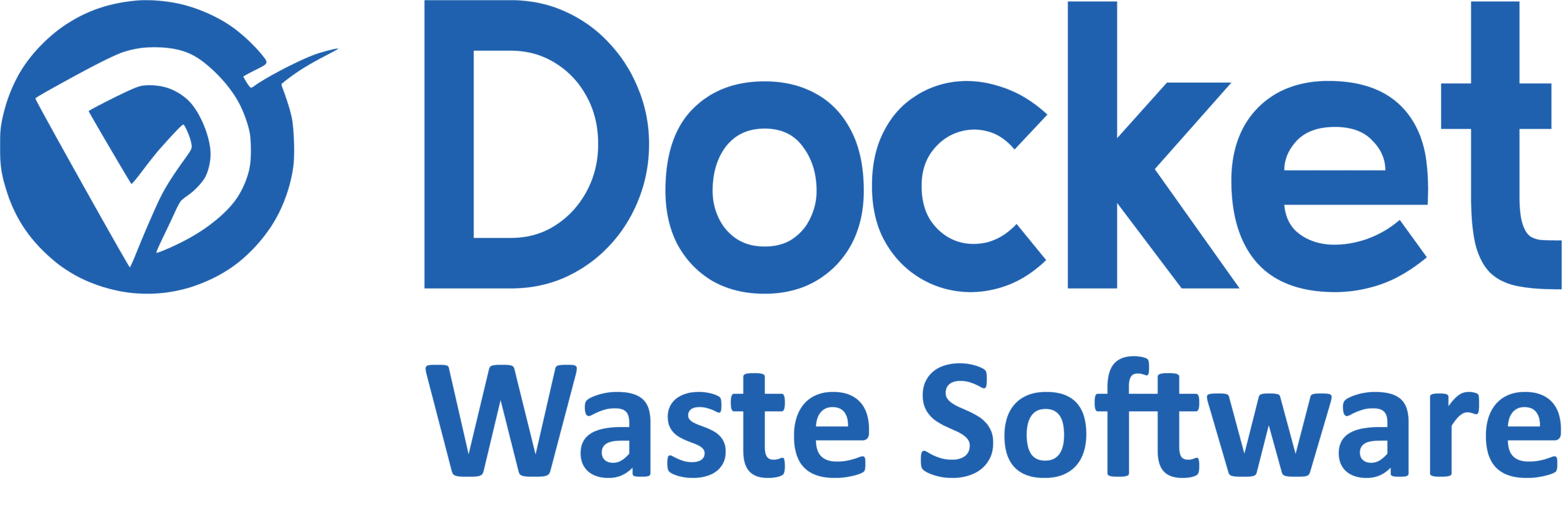How To Finance A Dumpster Rental Business
Key Takeaways
- Starting with cash gives you proof of concept and leverage when approaching banks for future growth.
- Financing enables faster scaling but increases risk if not managed carefully.
- There is no one-size-fits-all approach. Choosing between cash and credit depends on your risk tolerance, access to capital, and business goals.
- Creative financing strategies like 0% APR credit cards can help new haulers get started safely.
- Docket helps haulers stay financially organized with job tracking, invoicing, and reporting tools that make it easier to manage growth.
Transcript
I think it’s way better to start very cash heavy on the front end or sort of cash heavy on the front end. That way you have something to prove, you have testing ground, and then you can go to a bank and be like, this is what I cash flowed this year by financing all this myself. I need to double down on the business. Here’s what I need.
What are some of the best practices when it comes to financing? Should you be purchasing with cash, do you finance, is it a combination of both?
So, um, financing. Who wants to start with that?
There’s no like right or wrong way to do it. I think it just boils down to pain tolerance. And then you kind of need to have a little bit of foresight and a little bit of wisdom with how you do things, because there’s advantages and disadvantages to both.
You know, if you finance a lot of stuff, if you can get approved for a lot of stuff, you can grow and scale the business very quickly, which means that you could then get those loans paid off, be a much larger company making a lot more money. But at the same time, you could also buy a whole lot of stuff, have some kind of issue that you didn’t know about beforehand, lose your backside on it from making mistakes with big zeros on the end.
And then you could also, on the flip side, if you’re paying everything in cash, you could grow slowly and not have some of that extra capital at the end of the year. If you had a really good successful year, you could have had a better year had you financed stuff.
Financing—in some cases like financing versus cash—you might not have a choice. It can be difficult to get financing in this business for certain things. And it really, again, it’s so situational because do you have the cash to start and don’t want to spend it? Do you have good credit? Do you have a relationship with the bank? Is there anything you can borrow off of to possibly get started? Can you get financing through a dealer or something like that for the equipment?
Most of my stuff is financed through the bank.
I think it’s way better to start very cash heavy on the front end or sort of cash heavy on the front end. That way you have something to prove, you have testing ground, and then you can go to a bank and be like, this is what I cash flowed this year by financing all this myself. I need to double down on the business. Here’s what I need. That is a lot easier conversation to have with your bank than, I’ve never done this before, I don’t know anything about it, I need 200 grand.
When I first got started, I did one of the riskiest things and I bought my first trailer with a credit card. And I do this every year, actually. I buy something with a credit card every year because you can get yourself, if you have decent credit, a 0% interest credit card with a pretty decent size limit. I did that for my first trailer, and then I had 18 months—was it 18 or 21 months? Because it changes every year what the allowed is—that’s 0% APR for 18 months. So you have to just pay the minimum.
It will affect your credit a little bit if you’re only paying the minimum, so keep that in mind. You have to have some foresight. But you could get into the business in very creative ways and be safe.
So it gives you 18 months to pay it off. I paid it off in like six, I think, after I bought my first trailer and dumpster, and then I turned around and bought like two or three more with the same credit card.
FAQ
Starting with cash gives you proof of concept and cash flow history, which makes it easier to secure financing later. However, financing can speed up growth if managed responsibly.
Docket helps you track expenses, revenue, and job history so you can demonstrate business performance to lenders and manage cash flow more effectively.
Use Docket to monitor profitability, outsource non-core tasks, and consider low-interest or short-term financing only when you’re confident in your margins and demand.

